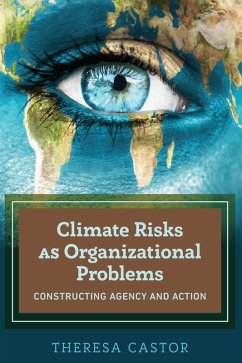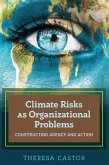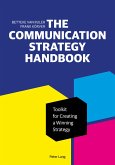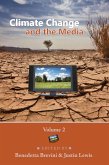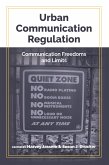Climate Risks as Organizational Problems: Constructing Agency and Action provides an introduction to the "Communication as Constitutive of Organizations" (CCO) approach by addressing key ideas in organizational communication such as sensemaking, decision-making, problem-formulation, and agency. This text is intended to introduce key ideas of the CCO perspective to undergraduate students, graduate students, and scholars who may be new to this area. Topical chapters feature case studies related to climate crises, the environment, and weather, making this work also relevant for those with an interest in environmental communication, risk communication, crisis communication, public relations, and public health. Chapters address decision-making during the Hurricane Katrina crisis, how a state in the southeast United States handled a winter snowstorm, heatwaves as creeping crises in Europe, and freshwater policy-making. The case studies provide insight in understanding how governmental agencies "interact" with weather crises and the public.
While natural hazards are worthy of study generally because of their impact, they are also worthy of study from an organizational communication perspective. Organizations such as governmental agencies, international organizations, nonprofit organizations, and nongovernmental organizations (NGOs), among others, play a role in preparing for or helping people to recover from natural hazards. Given that natural hazards are ongoing yet have a degree of unpredictability, examining how organizations respond to natural hazards provides a fitting circumstance for studying constitutive processes.
While natural hazards are worthy of study generally because of their impact, they are also worthy of study from an organizational communication perspective. Organizations such as governmental agencies, international organizations, nonprofit organizations, and nongovernmental organizations (NGOs), among others, play a role in preparing for or helping people to recover from natural hazards. Given that natural hazards are ongoing yet have a degree of unpredictability, examining how organizations respond to natural hazards provides a fitting circumstance for studying constitutive processes.
Dieser Download kann aus rechtlichen Gründen nur mit Rechnungsadresse in A, D ausgeliefert werden.

